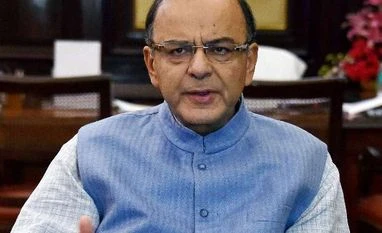The Budget, which is to be presented on February 29, is also likely to provide clarity on key initiatives to help ramp up infrastructure investments such as the National Investment and Infrastructure Fund (NIIF), the Public Private Partnership framework and the creation of a national asset reconstruction company.
| EXPECTATIONS |
|
More From This Section
According to news reports, the minister for road, transport and highways, Nitin Gadkari, hopes to spend Rs 1.5 lakh crore to achieve the target of awarding 15,000 km of roads in the coming fiscal year (2016-17). Of this, the ministry expects budgetary support to be around Rs 60,000 crore, up from Rs 45,000 crore in the current year. The balance is expected to be bridged through tax-free bonds and securitisation of toll revenue.
"While projects may be awarded, the challenge will be to see if the road targets are actually met," says Madan Sabnavis, chief economist, CARE. Tackling issues of debt among companies that have been awarded road contracts will go a long way in improving project completion rates. Analysts contend that if these issues are successfully addressed, greater road construction could have a ripple effect, with greater demand being generated for cement and steel.
Apart from greater budgetary allocations to key sectors, economists expect the budget to provide clarity on the proposed NIIF. The fund has been created as announced in the previous budget, but not much headway has been made so far. There is little clarity over its role or its structure. According to experts, if the government uses the fund judiciously to buy distressed assets from banks, help revive stuck projects and support large greenfield projects, rather than bail out companies, it could boost infrastructure investment significantly. The fine print is also expected to reveal how the fund will be financed by the government.
Another keenly anticipated budget item is the revised framework for public private partnerships (PPPs).
The Twelfth Five Year Plan had estimated investments in infrastructure to grow from Rs 10.6 lakh crore in 2014-15 to Rs 15.9 lakh crore in 2016-17, with roughly half of this coming from the private sector through PPPs. But the PPP model in India is in tatters. And while the finance minister did announce setting up a 3P institute dedicated to ironing out kinks in the existing PPP framework, the proposal remains on paper.
Economists expect the budget to outline the government's views on the recommendations of the Kelkar committee on infrastructure, which has suggested overhauling the existing PPP framework. Of particular interest is whether the finance minister accepts the proposed contract renegotiation mechanism. Reworking the PPP framework along the proposed lines could see a spurt in private sector participation in infrastructure projects.
Another proposal that is being floated is the creation of a national asset reconstruction company to take over the bad assets of banks. While the RBI has expressed reservations about the proposal, if such an entity is created with adequate government financing, it could potentially free up capital for banks to lend to new infrastructure projects.
In his previous budget, Jaitley had delayed the fiscal consolidation roadmap, choosing to increase public spending on the grounds that greater public investment would crowd in private investments. But with debt-laden private firms still struggling to launch fresh investments, public spending will continue to have to do the heavy lifting in the foreseeable future.
The fiscal space to increase public spending will be constrained by the likely outflow on account of the implementation of the recommendations of the Seventh Pay Commission and One Rank One Pension scheme.
While postponing fiscal consolidation could provide the finance minister with room to boost public spending, the flip side is that an increase in government borrowing could raise interest rates, crowd out private companies and derail a recovery in private sector investment.
)